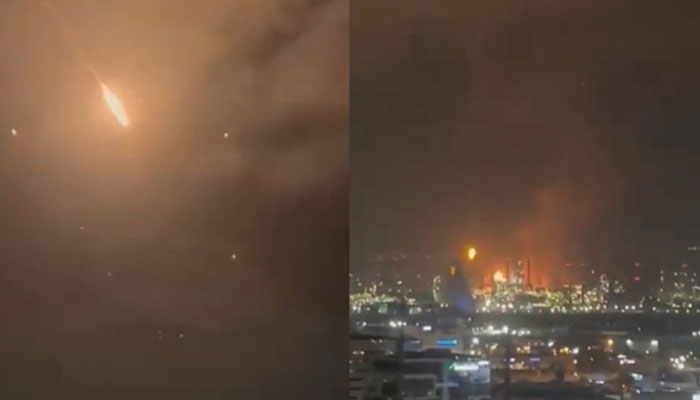Who doesn’t detest war? Who doesn’t cherish peace? Every sensitive soul, every heart that beats with humanity, abhors the idea of blood-stained walls and cries of the innocent. Why would anyone desire to make a child an orphan, a wife a widow or a father helpless? Yet, wars still happen! This implies that the state has lost its nurturing essence and is now under the control of heartless and self-serving elements. India has witnessed terrorist attacks in the past too but back then, it didn’t rush into war. So why now, after the Pulwama attack, was there such haste without providing concrete evidence? Why choose this particular moment? Do the ruling classes in both Pakistan and India consider this war essential? Are international powers also seeking gains from this conflict?
When war drums beat, the first question to ask is; who benefits? Who stands to gain something through war that peace cannot offer? Observing the recent Indo-Pak tensions, the advantages appear tilted toward certain powerful quarters. Once this is clear, emotions settle and one begins to analyze global politics with a fresh perspective. Ask yourself: Is this war in the public interest of Pakistan and India? No. Is it beneficial economically or commercially for either country? No. Does it favor regional development? Certainly not. Then who gains from it?
Let us dissect this by examining factors at individual, societal, national, regional and global levels to understand the true motives behind this conflict and identify the beneficiaries.
On the individual level, consider the ruling elites. In India, PM Narendra Modi and his allies promote the Hindutva ideology, which envisions the cultural and territorial revival of a historic Hindu civilization (an ideology similar to Israel’s Greater Israel) narrative. This worldview appeals to Hindu majorities and politically empowers Modi’s government. His stance against terrorism reinforces public confidence in his leadership. Hence, war rhetoric serves both ideological and electoral interests.
In Pakistan, the ruling class had been facing intense public criticism and ridicule, particularly on social media. Their credibility was severely damaged. War thus presented an opportunity to regain public trust and project themselves as national protectors, heroes capable of ensuring safety. This narrative diverted public attention from their failings and turned criticism into patriotism.
At the societal level, both countries are fragmented along ethnic and regional lines. Pakistan has Baloch, Sindhi, Pashtun and Punjabi communities, while India deals with internal unrest in areas like Kashmir, Assam, Manipur and the Khalistan movement among Sikhs. Governments that fail to deliver justice and equality inevitably face backlash. War becomes a unifying force, suppressing internal dissent under the veil of nationalism and patriotic fervor. As a result, concerns like missing persons, exploitation of natural resources and human rights violations fade from public discourse amid war slogans and military hype.
Regionally, geopolitical dominance is a factor. India desires hegemony in South Asia and projects itself as a regional superpower. The Kashmir conflict continues to be a flashpoint. This war could be an attempt to resolve Kashmir forcibly or reach a mutual settlement under the pretense of conflict. Both nations may be maneuvering toward a territorial compromise.
Globally, the timing of this war suspiciously coincides with the genocide in Gaza, where over 60,000 Palestinians have been martyred. But the global media, especially Western outlets like CNN, BBC and Al Jazeera, shifted focus entirely to Indo-Pak tensions. This benefits the U.S. and Israel, who wish to divert attention from their atrocities. Furthermore, ongoing conflict near China’s border also threatens Chinese interests, aligning with U.S. goals to entangle China in regional tensions, possibly triggering parallel conflicts in Taiwan.
This war serves multiple agendas: it helps Trump project himself as a peacemaker between nuclear powers, potentially enhancing his global stature and silencing criticism over U.S. support for Israeli aggression. It also allows Arab and Turkish regimes, exposed for their betrayal of Palestine, to regain lost credibility by supporting Pakistan diplomatically or militarily, while continuing pro-Western policies silently in Syria and Gaza.
In conclusion, this war serves not the people, but the interests of ruling classes both regional and global. It will likely persist until all strategic objectives are met. Full-scale war may not be sustained, but skirmishes, especially in border areas are bound to continue. A prolonged war will strain Pakistan, despite its proven capability for short-term retaliation. The emotional tide on both sides makes peace protests nearly impossible. But sanity demands we strive for peace, however limited our reach. You’ve now seen the bigger picture from individual motives to international strategies. It’s up to you to judge where politics thrives and whose interests this war truly serves.


Comments are closed, but trackbacks and pingbacks are open.